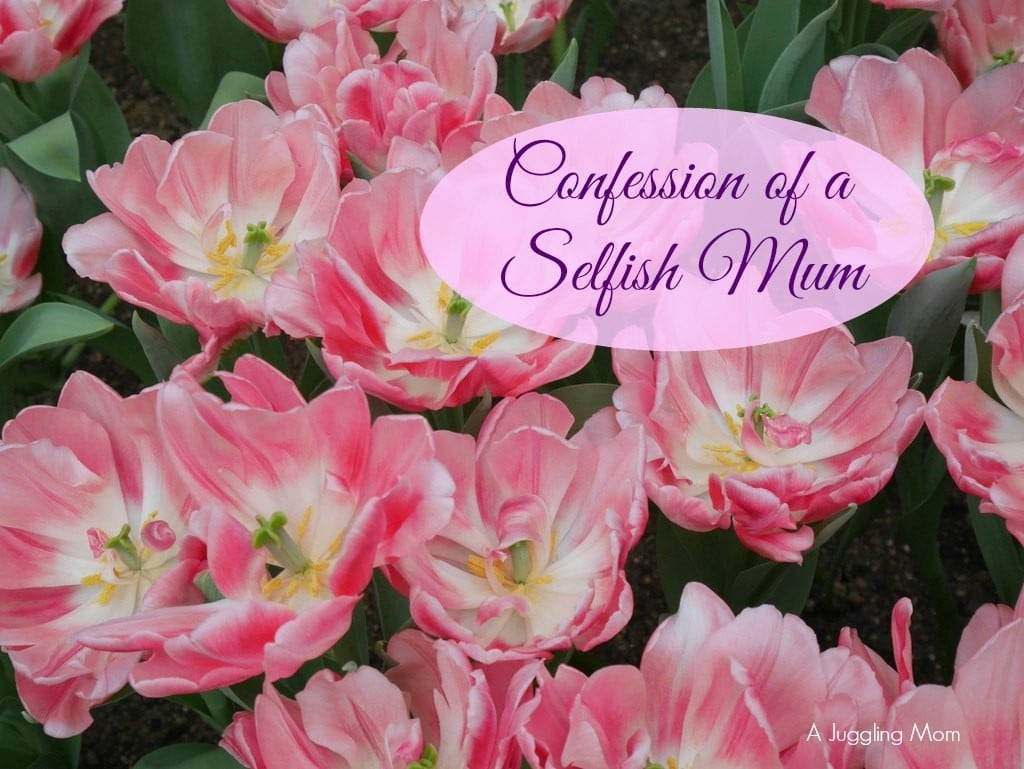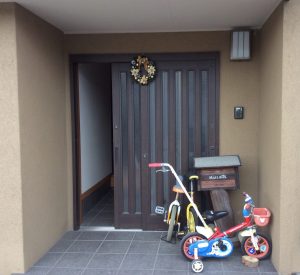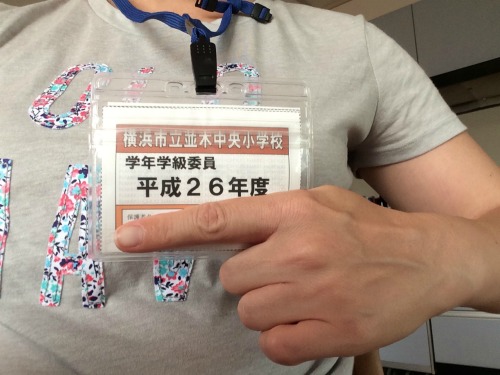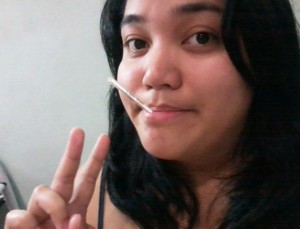
by Susan Koh | May 21, 2015 | 2015, Awareness, Being Thankful, Domesticity, Family, Friendship, Gratefulness, Happiness, Health, Holiday, Husband, Independence, Life Balance, Me-Time, Mental Health, Motherhood, Parent Care, Parenting, Relationships, Responsibility, Responsibility, Singapore, Stress, Susan Koh, Vacationing, World Motherhood
 As mums, we are always seen as the one who should be self-sacrificing and present for our families. After all, we are the ones that our children turn to when they can’t go to bed, when they need a kiss on their boo boo or when they are back from school with a growling tummy that needs to be fed.
As mums, we are always seen as the one who should be self-sacrificing and present for our families. After all, we are the ones that our children turn to when they can’t go to bed, when they need a kiss on their boo boo or when they are back from school with a growling tummy that needs to be fed.
I’m not complaining about motherhood and there is nothing in the world I would trade it for. But some days, I feel so tired of playing mummy that I wish I could escape from all my mummy duties; and I’m pretty sure I’m not the only mum who feels this way.
And as you have it, I did get a little escapade when my group of girlfriends decided to head for a short weekend getaway to Thailand, sans husband and kids. Thankfully, my hubby was more than happy to step up and take care of my little one, giving them extra bonding time.
It turned out to be a weekend of shopping, eating and shopping some more; something that I hardly do with a little one who’s too inpatient to get out of the malls. And I could eat all the spicy food I wanted, which I usually avoid since I end up sharing most of my meals with my daughter. Nights were spent staying up late, chatting with friends and watching movies back in the hotel.
Did I miss my child? Of course, I did but you know what, it was refreshing to place myself first and not worry about my family during this break.
Sadly for mums, being selfish or putting ourselves first is regarded as a sin. And that’s why there are so many tired and depressed moms, who feel that they have no choice but to be dutiful and ignore their own needs.
Happy Mother = Happy Family
Never for a second did I think that I was a bad mom for going on that trip. I think that as moms, sometimes we need to choose ourselves over our families to ensure that we are recharged in order to go the distance and be a better spouse and better mother.
I love being a mom and while I’m far from being a perfect or super mom, I can say that I’m doing my best every single day.
My mantra has always been Happy Mother = Happy Family. And might I add for my hubby, Happy Wife= Happy Life.
So go ahead, take care of yourself. Pursue your personal happiness and take time to nourish yourself, body, mind and soul. Trust me, you’ll benefit from it and your children will too!
This is an original post to World Moms Blog from our “super mom” of one in Singapore, Susan Koh.
The image used in this post is credited to the author.
Susan is from Singapore. As a full-time working mom, she's still learning to perfect the art of juggling between career and family while leading a happy and fulfilled life. She can't get by a day without coffee and swears she's no bimbo even though she likes pink and Hello Kitty. She's loves to travel and blogs passionately about parenting, marriage and relationship and leading a healthy life at A Juggling Mom.
More Posts

by Melanie Oda (Japan) | Jan 8, 2015 | 2014, Awareness, Child Care, Childhood, Culture, Domesticity, Education, Expat Life, Eye on Culture, Family, Feminism, Grandparent, Home, Husband, International, Japan, Life, Life Lesson, Living Abroad, Marriage, Me-Time, Motherhood, Multicultural, Parent Care, Parenting, Priorities, Relationships, Responsibility, School, Social Equality, Womanhood, Women's Rights, World Motherhood, Younger Children
 Gender equality has been in the news quite a bit in Japan recently, sort of, and some things have happened closer to home that have me thinking.
Gender equality has been in the news quite a bit in Japan recently, sort of, and some things have happened closer to home that have me thinking.
It started when a (female) Tokyo assembly member was heckled in a sexist way. Then Prime Minister Abe introduced some new policies to let women “shine.” (He needs to get them doing something for the economy.) He even appointed several women to cabinet posts, for about five minutes, until they were slapped back down into their places over minor scandals.
In Japan, people are talking more about issues women face but no one seems to be doing much about them.
(Lest I forget: strangely enough, the declining birth rate is treated as a “women’s issue.” I seem to remember my husband being involved, too.)
I never considered myself a feminist growing up. Some members of the evangelical, conservative community I grew up in doubtless felt “feminist” was a new version of the “F-word.”
OK, so I went to a high school with more sports options for boys than girls. And yes, girls were encouraged to take chorus and home economics instead of woodworking or mechanics. So maybe I heard men from my community refer to grown women as “broads” or “gals.” There also were some restrictions at church regarding women’s and men’s roles. But I never felt that possessing certain types of baby-making parts limited my potential.
Then I moved to Japan, where gender roles are more firmly entrenched and my way of thinking slowly changed.
As I get older, and because I am a mother, I find that I am limited in ways that I couldn’t have foreseen as a young girl.
Some people may find life here in Japan freeing. If you aspire to be a homemaker a la Martha Stewart, then your life’s work would be very much respected and appreciated here. My husband wouldn’t bat an eyelid if he came home to a messy house because I’d spent the day at a preschool mothers’ lunch. He knows that is part of the job (on the other hand, it would never occur to him to pick up the mess himself.)
If, as a woman, you have other aspirations, Japanese culture seems designed to work against you. The glass ceiling is very much in tact. On the news here you do hear issues like lack of childcare and “maternity harassment” being addressed. But what gets talked about less often is that to many women, including myself, it feels as if there’s a glass door as well.
It’s my front door.
Before a woman can even think about what is facing her out in the world, she needs to address the forces that are keeping her at home. Some of these are practical, some are logistical, some are cultural and perhaps peculiar to Japan and it’s work culture.
For me, it starts with my husband: He leaves home at 7am every morning, but I have no idea what time he will be back. Sometimes it’s 7pm. Sometimes it’s midnight. He may be in the office that day, or he may suddenly be sent to another prefecture. He’s made international trips on 12 hours notice. I cannot depend on him being home at a designated time, by no fault of his own. The idea of him taking time off with a sick child is preposterous in the extreme.
I have been lucky enough to have two job offers recently, both of which would be more or less during school hours, but neither is nearby. If a child were to get sick and need picking up, or if god-forbid there was a natural disaster (which is always in the back of your mind if you are a mother in Japan,) then my husband would be closer. I mentioned that, and he completely shot me down. Not just the idea of him picking up the kids in case of an emergency, but the idea of a job anywhere outside of cycling distance from the school.
We live in a residential neighborhood. I patch together some part-time work here and there, but it’s not like there are loads of professional opportunities in a two kilometer radius.
I suddenly felt very limited, penned in, in a way I haven’t felt before. The glass door was slamming in my face.
I don’t think I’m alone in this conundrum. Go to almost any supermarket in a residential area during the day, and you will see women in their prime working years manning the register. Many of these women have university degrees. Many have licenses and qualifications to be doing other kinds of work, but they want to stay close to home. They also need salaries to stay under $10,000 year or face a peculiar Japanese tax code and insurance system that penalizes families where both partners have incomes over that amount.
Then there are my kids: Like 2/3 of Japanese women with children under 6, I stayed home when they were small. They now completely depend on me for everything. It seems to have never entered their minds that someone else could give them a bath or help them find their missing socks, mostly because no one else has ever done anything for them. Especially when they are sick, they want only me. It was very hard when my daughter was in the hospital, both children wanting to be with me and emphatic that no one else would do.
But now my youngest is in elementary school, and I would like to just be doing more of something….else, but for me to plunge into the workforce would be a huge adjustment for my children. Is it worth the stress? Can we survive what is sure to be a painful adjustment period?
Maybe if I had more family support, it would feel less impossible but as it is, it seems like everyone is against me.
Which brings me to the final characters in this comedy, my in-laws: They say they’ll watch the kids, then they change their minds. Or something better comes up. From their point of view, this house and these people are completely my responsibility. Anything they do is extra credit.
To be honest, we’re getting to the point where my in-laws need my help more than I need theirs.
They aren’t shy about letting me know my place.
One day not too long ago, my son was playing at the park with his friends. It was getting close to homework time, so I called him and told him to come home. He said he was playing with Jiji (which is an endearing term for grandfather used in our region of Japan,) and could he play for a bit longer? Since he was out with an adult, I said okay.
The next day, I got a verbal whipping from my father-in-law over the phone, accusing me of being irresponsible, a bad mother. It took me a few minutes to understand why he was saying this, but when I got to the bottom of it, I realized my son had lied to me. He was playing with his friends when Jiji walked by and told him to go home. My son told him I wasn’t at home and said he couldn’t come back until I did. (I must have called right at this point.) “How dare you not be home in the afternoon?” said Jiji.
Putting aside that none of this nonsense was true, so what if I wasn’t home in the afternoon? Of course I wouldn’t have left the kids to wander the neighborhood like stray dogs, but why was my not physically being inside my house such an issue to him? His assumption that it was my duty to be always available to everyone took me by surprise.
I could almost hear the glass door slamming again.
There are also other barriers for women in Japan—an over active PTA for one, and a myriad of community responsibilities attended to exclusively by women for another. I imagine most women in the world encounter both the “glass door” and the “glass ceiling” in some form or another, but in Japan only one of these factors is seems to be getting much attention. Building new daycare facilities isn’t enough; the government stating goals to increase women’s participation in the workforce isn’t enough. Until we do something about that glass door, nothing will change for one of the best educated, least utilized group of women in the world.
Do you feel you are fulfilling your potential, both at work and at home? What’s the situation like in your country?
This is an original post for World Moms Blog from our writer and mother of two in Japan, Melanie Oda.
If you ask Melanie Oda where she is from, she will answer "Georgia." (Unless you ask her in Japanese. Then she will say "America.") It sounds nice, and it's a one-word answer, which is what most people expect. The truth is more complex. She moved around several small towns in the south growing up. Such is life when your father is a Southern Baptist preacher of the hellfire and brimstone variety.
She came to Japan in 2000 as an assistant language teacher, and has never managed to leave. She currently resides in Yokohama, on the outskirts of Tokyo (but please don't tell anyone she described it that way! Citizens of Yokohama have a lot of pride). No one is more surprised to find her here, married to a Japanese man and with two bilingual children (aged four and seven), than herself. And possibly her mother.
You can read more about her misadventures in Asia on her blog, HamakkoMommy.
More Posts

by Melanie Oda (Japan) | Jun 5, 2014 | 2014, Japan, Parent Care, School

I have vague memories of the Parent Teachers Association (PTA) in the US, where I grew up. I remember the occasional school-wide meeting being held in the evening and a fall festival here, or there, involving baked goods. I’m not sure how much of my non-memory is due to just being an average kid (that is, extremely self-involved and just not noticing what the grown-ups were doing) or if the whole thing was just lower key.
Or, perhaps, my parents had some choice in the matter.
At any rate, PTA membership in Japan is by default. They take the fees out of your bank account right along with school supplies and school lunch payments. (Lunches her are amazing, by the way. A topic for another post.) I don’t know if it’s possible to opt out, or not. I certainly don’t know anyone who has tried!
The PTA at my children’s school is arranged like a pyramid, and at the top are the officers. Beneath them are the leaders of the four councils: class representatives, safety, and … well, in Japanese they call it “public information”, the group that makes the quarterly newsletter, along with the nomination committee. (These are the guys that try to suck you into being an officer for the next school year). Underneath that are the representatives from each class, and beneath all that is everyone else.
You are expected to serve on one of these councils at least once for each child.
This year, I ended up being the class rep for the first grade.
- Our job is to organize a school lunch “tasting day,” when parents can have lunch at school. But not with their child, in the Home EC room. (Both my daughter and I were disappointed by that.)
- Arrange and execute the washing of all the schools curtains. Twice. (I didn’t realize I should be washing my curtains at home twice a year….oops.)
- Collect and prepare for posting “bell marks,” the Japanese version of “Boxtops for Education,” collecting proofs of purchases that can be exchanged for school supplies.
- And lastly, mending the white smocks that children wear when distributing school lunches (in Japan, the children help prepare the lunch.)
Whew, that was quite a list!
Of course, all of these jobs require multiple letters sent home, which we prepare, and monthly meetings because … well, because this is Japan, perhaps.
Every family without fail is to volunteer for one of the tasks, either washing curtains, helping organize the bell marks, or mending the smocks.
When my oldest child started school, I was really surprised that the PTA were in charge of things that were so nitty-gritty.
I’m pretty sure, for example, the my mother never washed school curtains in her washing machine and then hauled them back to school to hang them up, still wet, after cleaning the school’s curtains rails.
So it makes me wonder …
What is PTA like in your country? Do you have to participate? What kind of things do you do?
This is an original post by our World Mom Melanie Oda from Japan.
Photo credit to the author.
If you ask Melanie Oda where she is from, she will answer "Georgia." (Unless you ask her in Japanese. Then she will say "America.") It sounds nice, and it's a one-word answer, which is what most people expect. The truth is more complex. She moved around several small towns in the south growing up. Such is life when your father is a Southern Baptist preacher of the hellfire and brimstone variety.
She came to Japan in 2000 as an assistant language teacher, and has never managed to leave. She currently resides in Yokohama, on the outskirts of Tokyo (but please don't tell anyone she described it that way! Citizens of Yokohama have a lot of pride). No one is more surprised to find her here, married to a Japanese man and with two bilingual children (aged four and seven), than herself. And possibly her mother.
You can read more about her misadventures in Asia on her blog, HamakkoMommy.
More Posts

by Karyn Wills | Apr 14, 2014 | 2014, Awareness, Being Thankful, Brothers, Communication, Family, Kids, Life Lesson, Motherhood, New Zealand, Older Children, Parent Care, Siblings, World Moms Blog, World Motherhood

The author with her three boys
When my boys were small, it was easy to find ways for them to nurture. They all had dolls and stuffed animals to care for and I tried hard to let them hug me whenever they wanted, even when it was really inconvenient or awkward, or snotty, or tiring for me.
But it got harder, when they got older. Dolls gave way to LEGO and cars, then Nerf guns and Minecraft. Time away from me at kindy or school, or play-dates or sport, meant the hugs, while no less enthusiastic, were less frequent. I realised I had to be more lateral in seeing their nurturing: Life had changed and they had grown beyond my initial, pre-baby, plans and ideas.
It came to me in a flash of understanding, a few weeks ago, how much their being in service to me, is their way of nurturing and this is what I now focus on, for this part of their growth and development.
The times when they tell me to sit on the sofa and do nothing, I need to listen to them and do as they wish. And while I have always accepted their offerings of daisies and dandelions picked from the lawn and scrunched in tiny hands, I now have to accept them pouring my wine and cooking my dinner – without my input.
The times they volunteer to do these things, I need to keep my directions to myself and my appreciation flowing – despite my discomfort at sitting still while they work and despite the painful slowness with which they perform these tasks.
I have also learned to accept them opening doors for me. They do this not because they think I can’t manage to do so for myself, but because it’s a way they can show me that they care for me.
And I accept their offerings, not because I think I deserve this gesture because of my gender, or my age, or my position as grand dame in their lives, but because I see it for what it is: Nurturing of me, and something to be valued and encouraged.
Apologies have also become a point of nurturing. In our house, they are seen not as just social niceties and empty words, but as a starting point for repairing a battered emotional bond. After an apology-needing moment they almost always ask, “How can I make things better?” And are wonderful at showing they really do mean their words via their actions. They nurture their relationship with me, as I do with them.
No, they aren’t angel children who do these things all the time. They still need direction and they can be down right horrid. They are often disorganised and they are often messy, noisy and silly. But they do show their ability to nurture in a variety of ways. I just have to look at their actions from a different perspective, and accept their gestures as signs of the loving emotion behind them.
How do your children show you they care?
This is an original post to World Moms Blog from our writer in New Zealand and mother of 3 loving boys, Karyn.
The photograph used in this post is credited to the author.
Karyn is a teacher, writer and solo mother to three sons. She lives in the sunny wine region of Hawke’s Bay, New Zealand in the city of Napier.
More Posts

by Mamma Simona (South Africa) | Sep 4, 2013 | 2013, Death and Dying, Family, Grandparent, Health, Hospital, Parent Care, South Africa, Spirituality, Uncategorized, World Motherhood
 Some religions have followers who refuse to accept blood transfusions, and other religions actually prohibit medical intervention of any kind. They believe that prayer alone will save those who are ill or injured, and if it doesn’t that it was “God’s will” for that person to die.
Some religions have followers who refuse to accept blood transfusions, and other religions actually prohibit medical intervention of any kind. They believe that prayer alone will save those who are ill or injured, and if it doesn’t that it was “God’s will” for that person to die.
Those of us who don’t belong to those religions tend to shake our heads and feel that they are being unreasonable. After all, if medicine and/or medical knowledge is available, why should we allow our loved ones to suffer or even die without making use of it? Some would even argue that “God’s will” has allowed us to create the life-saving hospitals and medicines in the first place. Surely, if we love someone we will do everything in our power to save them, won’t we? We pray, but we also avail ourselves of doctors and hospitals.
The question we must then ask ourselves when someone we love is suffering is: At what point are we just prolonging the inevitable demise of a person? Is it “living” if we are not aware of what is going on around us and can’t breathe by ourselves, or talk, or feed ourselves and have no control at all over our bodies? How much is too much? (more…)
Mamma Simona was born in Rome (Italy) but has lived in Cape Town (South Africa) since she was 8 years old. She studied French at school but says she’s forgotten most of it! She speaks Italian, English and Afrikaans. Even though Italian is the first language she learned, she considers English her "home" language as it's the language she's most comfortable in. She is happily married and the proud mother of 2 terrific teenagers! She also shares her home with 2 cats and 2 dogs ... all rescues.
Mamma Simona has worked in such diverse fields as Childcare, Tourism, Library Services, Optometry, Sales and Admin! (With stints of SAHM in-between). She’s really looking forward to the day she can give up her current Admin job and devote herself entirely to blogging and (eventually) being a full-time grandmother!
More Posts - Website
Follow Me:


by Patricia Cuyugan (Philippines) | Jul 25, 2013 | Discipline, Health, Me-Time, Parent Care, Philippines, Stress, World Moms Blog, World Motherhood
 I’ve been on supermom mode over the last few months. School has started for us here in the Philippines, and for the first time my son is spending the whole day in class. Because of this I’ve been on 5am kitchen duty preparing breakfast and packing snacks and lunch. I’ve been spending most of my days at home, working. I try to take on as many projects as I can these days because at present, mine is the primary source of income for our family. Afternoons are spent studying and doing homework with the kid after school. In between everything else, there are errands to run, meetings and events to attend, and countless other things to do. Thankfully, my husband has taken over driving duties. He also helps with the homework. He brings me ice cream when he knows I’m extra stressed out. I am glad that I’m not alone in this, but it has honestly begun to take its toll.
I’ve been on supermom mode over the last few months. School has started for us here in the Philippines, and for the first time my son is spending the whole day in class. Because of this I’ve been on 5am kitchen duty preparing breakfast and packing snacks and lunch. I’ve been spending most of my days at home, working. I try to take on as many projects as I can these days because at present, mine is the primary source of income for our family. Afternoons are spent studying and doing homework with the kid after school. In between everything else, there are errands to run, meetings and events to attend, and countless other things to do. Thankfully, my husband has taken over driving duties. He also helps with the homework. He brings me ice cream when he knows I’m extra stressed out. I am glad that I’m not alone in this, but it has honestly begun to take its toll.
I know that a lot of moms are guilty of concentrating too much on taking care of their kids, their husbands and their households that they forget to take care of themselves. I just never thought that I would one day become that sort of mommy. Truth be told I’ve gained so much weight from stress-eating. I’ve completely given up on the exercise routine I promised myself that I would stick to. I’ve been sleeping late and I waking up before dawn. I know that I’ve been extra tired because some nights I just pass out after dinner and wake up when my alarm goes off the following morning. The funny thing is, even though my body has been telling me to slow down, I’ve been choosing to listen to that little nagging voice in my head telling me that other moms have so much more to do than I do, and that I should just keep on keeping on.
And so I did.
And then I got sick. (more…)
Patricia Cuyugan is a wife, mom, cat momma, and a hands-on homemaker from Manila, whose greatest achievement is her pork adobo. She has been writing about parenting for about as long as she’s been a parent, which is just a little over a decade. When she’s not writing, you can usually find her reading a book, binge-watching a K-drama series, or folding laundry. She really should be writing, though! Follow her homemaking adventures on Instagram at @patriciacuyugs.
More Posts
Follow Me:




 As mums, we are always seen as the one who should be self-sacrificing and present for our families. After all, we are the ones that our children turn to when they can’t go to bed, when they need a kiss on their boo boo or when they are back from school with a growling tummy that needs to be fed.
As mums, we are always seen as the one who should be self-sacrificing and present for our families. After all, we are the ones that our children turn to when they can’t go to bed, when they need a kiss on their boo boo or when they are back from school with a growling tummy that needs to be fed.










 I’ve been on supermom mode over the last few months. School has started for us here in the Philippines, and for the first time my son is spending the whole day in class. Because of this I’ve been on 5am kitchen duty preparing breakfast and packing snacks and lunch. I’ve been spending most of my days at home, working. I try to take on as many projects as I can these days because at present, mine is the primary source of income for our family. Afternoons are spent studying and doing homework with the kid after school. In between everything else, there are errands to run, meetings and events to attend, and countless other things to do. Thankfully, my husband has taken over driving duties. He also helps with the homework. He brings me ice cream when he knows I’m extra stressed out. I am glad that I’m not alone in this, but it has honestly begun to take its toll.
I’ve been on supermom mode over the last few months. School has started for us here in the Philippines, and for the first time my son is spending the whole day in class. Because of this I’ve been on 5am kitchen duty preparing breakfast and packing snacks and lunch. I’ve been spending most of my days at home, working. I try to take on as many projects as I can these days because at present, mine is the primary source of income for our family. Afternoons are spent studying and doing homework with the kid after school. In between everything else, there are errands to run, meetings and events to attend, and countless other things to do. Thankfully, my husband has taken over driving duties. He also helps with the homework. He brings me ice cream when he knows I’m extra stressed out. I am glad that I’m not alone in this, but it has honestly begun to take its toll.




